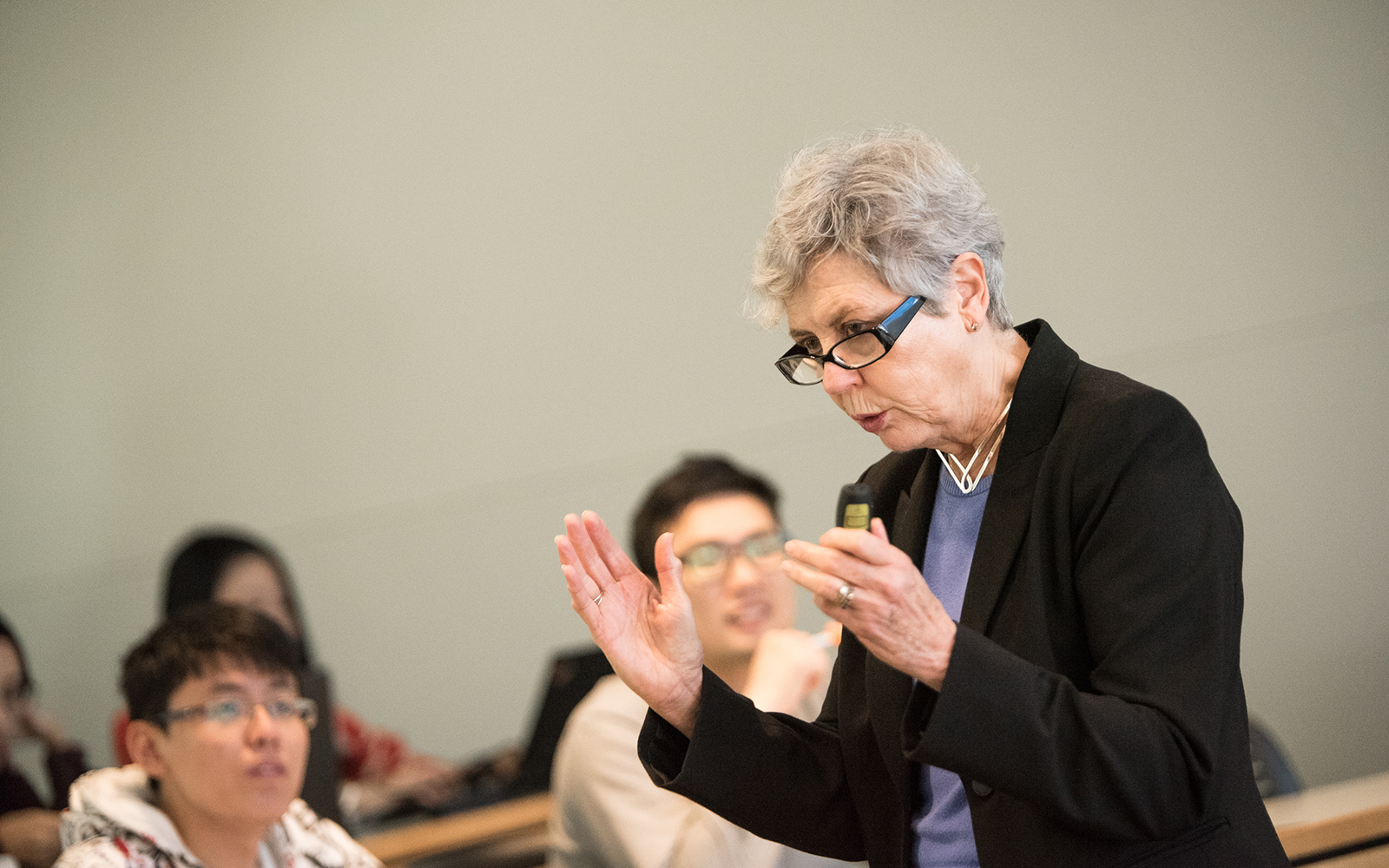Professor Katherine Pancak, a well-respected finance and real estate professor and champion of the Stamford campus, has been named as the Academic Director of Business at the Fairfield-County campus.Continue Reading
Author: Claire Hall
Wolff Family Philanthropy Champions UConn Entrepreneurs with ‘Unstoppable Ambition’
UConn Today – If there is one thing that alumnus Thomas John Wolff ’56 (BUS) knew well, from first-hand experience, it’s that becoming a successful entrepreneur is incredibly hard work.
Wolff, who once owned five businesses simultaneously, believed in persistence, ambition, determination and almost unstoppable drive. He also knew that a great mentor and wise advice can take a young entrepreneur a very long way.Continue Reading
Finance Experts, Rookies Watch Cautiously As Reddit Users Snap Up GameStop Stock
UConn Today – When adjunct finance professor Jeffrey Annello ’10 (BUS) met with his students Wednesday night, everyone wanted to talk about GameStop stock, which had soared more than 17-fold in the previous two weeks.
Spurred on by a Reddit message board, small investors snapped up shares of the retailer, spurring an investment frenzy. But what was the logic behind it? GameStop has been floundering, with only one profitable quarter in the last six. Gamers have been skipping brick-and-mortar stores and purchasing entertainment online.Continue Reading
MSBAPM Students ‘Awash’ in Knowledge After Completing Capstone Project For Henkel

Creating a great laundry detergent is just the first step in conquering the household cleaning market.
That’s one of the concepts that UConn MSBAPM students learned during their capstone-class project last month. Their task? Providing data, customer insight, and e-commerce support to Henkel, which markets a wide range of well-known consumer and industrial brands in North America, including Persil®, Purex®, and all® laundry detergents and Snuggle® fabric softeners.Continue Reading
Hartford Has Become One of Top 5 Cities for Techies

Hartford is among the Top 5 cities that techies are relocating to in the wake of the global pandemic. Despite rumors that Austin and Miami are luring tech workers, Inc.com is reporting that Madison, Wisc., Cleveland, Sacramento, Minneapolis-St. Paul and Hartford are “winning the war” to attract those fleeing the traditional big-city tech hubs.Continue Reading
Business Professor Wins $2.5 Million Fantasy Football Jackpot Using the Concepts He Teaches Students
UConn Today – UConn School of Business professor David Bergman won $2.5 million this week in a fantasy football competition by using some of the data analytics knowledge and techniques he teaches students.
“I’m just shocked by the whole thing, but it’s very exciting,’’ says Bergman, who has been a faculty member in the operations and information management (OPIM) department for seven years. “I’ve played fantasy sports since I was in college and it’s such a fun hobby.’’Continue Reading
Top Management Scholar, Enthusiastic Entrepreneurship Mentor Evan Rawley to Join Faculty

Evan Rawley, an exceptional scholar and enthusiastic entrepreneurship mentor, has joined the School of Business faculty as an associate professor of management and entrepreneurship.
Greg Reilly, the head of the management department, said Rawley will be a tremendous asset to the school.Continue Reading
Alum Who Created ‘Merican Mule Cocktail Company Has Plenty to Celebrate
UConn Today -Sales of ‘Merican Mule premium cocktail have skyrocketed since the start of the COVID-19 pandemic, fueling the good spirits of its UConn alumnus co-founder.
“Sales have been shot out of a cannon,’’ says Dean Mahoney ’09 (BUS). “The pandemic posed challenges to people who typically went to bars and restaurants. They wanted a quality cocktail at home, so they shifted their search to liquor stores.Continue Reading
Professor Emerita Susan Spiggle Gives Large Gift to PhD Program

For novice writers, it is often difficult to accept constructive criticism and develop a willingness to edit and repeatedly revise their work.
Overcoming that reluctance is essential for Ph.D. students who plan to become professors, because their careers hinge on their ability to clearly define their research and present it in a concise and appealing way to editors at top academic journals.
“For future faculty members, being able to write is their bread and butter,” said Professor Emerita Susan Spiggle. “You can have all the best data in the world but if you can’t write clearly and define the importance of your work, it really doesn’t matter at all.”Continue Reading
Professor Mitra: Marketers Who Don’t Maximize Data Analysis Are Sitting On An Untapped Gold Mine

Marketers often collect and analyze customer information that is easy to access and synthesize, but omit or gloss over the deeper and more valuable analytics that can foster a powerful competitive advantage for their corporations.Continue Reading